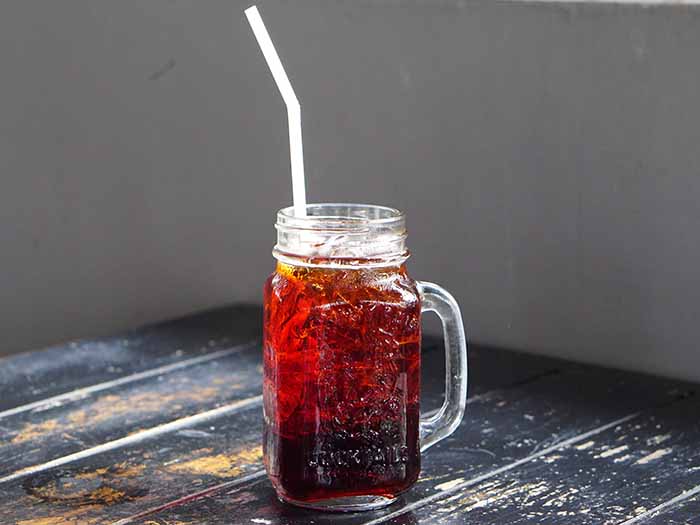Drinking Thai tea is a way of life in some parts of the world, and it may also boosts your overall health and wellness in a number of surprising ways.
What is Thai Tea?
Thai tea is a popular traditional beverage in Thailand that is served either hot or cold and is generally prepared with tea, sugar, and milk. While those ingredients don’t sound particularly interesting or unique, the tea blend tends to be a local Ceylon variety, and there are many other ingredients, spices or alterations that are made, depending on who is preparing the tea. Different types of milk are added, star anise or tamarind seed may be mixed in, among other popular variations. This creamy and frothy drink can come in light or dark varieties and is more popularly served with ice. That being said, in the mornings, hot Thai tea is also a popular option. [1]
In terms of caffeine, there are between 50 and 60 milligrams per 8-ounce cup of this beverage, about half of what you would get in an average cup of coffee. Perhaps the unique thing about this tea is its strange color – which tends to be orange, amber or pale red in color. Since the leaves used are basic black tea leaves, some people are confused by the ultimate appearance of their drink. As it turns out, in Thailand, this color may come from the inclusion of tamarind seeds or other colorful spices, as well as the natural way that the tea leaves color the water. In Thai tea that may be purchased in America or Europe, red or yellow food coloring is often added to give Thai tea its distinctive look.
Variations of Thai Tea
The basic variations of this tea include hot Thai tea and cold Thai tea.
Hot
The hot varieties of this tea include Thai hot tea, which is brewed hot and then sweetened with milk and sugar. The other variety, dark Thai hot tea, eliminates the milk, so the beverage is sweetened only with sugar. Both of these varieties may include other spices and flavorings, depending on your recipe or preference. [2]
Cold
When serving this beverage cold, one variation could be dark Thai iced tea, which is simply the basic brew with sugar, rather than adding the milk for the frothy appearance. Another variation is called lime tea, in which the dark Thai iced tea is sweetened with lime, sugar, and mint.
Thai Tea Nutrition Facts
This specialty tea is a good source of sugar, protein, and fat, depending on how you prepare the beverage. Moderation is also key since there is a good amount of calories, ranging from 180-300 calories per glass. However, this is all derived from the sugar and milk; the tea itself is a calorie-free drink. Again, depending on your preparation method, you may also get significant levels of vitamin A, vitamin D, and calcium. There are also notable antioxidants and active ingredients in the tea leaves that boost overall health. [3]

Thai iced tea is a delicious and refreshing drink made of milk, tea and sugar. Photo Credit: Shutterstock
Thai Tea Benefits
The most notable benefits of Thai tea may include its possible effects on cholesterol levels, weight loss, and stress. among others. It also has anticancer properties.
May Have Anticancer Potential
Sarunyou Chusri, Phattraphon Singthong, et al, researchers at the Natural Product Research Center of Excellence and Faculty of Traditional Thai Medicine, Prince of Songkla University, Thailand published a study in the CYTA- Journal of Food, that investigated the antioxidant, anticancer, and cytotoxic properties of 18 ethanol extracts of the plant-based preparations described in Thai Pharmaceutical Textbook. As with many black teas, this type of tea has a number of powerful antioxidants that can help to reduce oxidative stress and prevent the negative effects of free radicals in the body. [4]
May Aid in Weight Loss
Despite the high-calorie count of this beverage, it can be very filling, and the caffeine can suppress hunger in some cases, preventing overeating and helping you with your weight loss goals. [5]
May Help Provide Energy
Caffeine is an excellent way to boost both the metabolism and your overall energy levels, helping you burn more fat and be more active. [6]
May Improve Heart Health
Research has shown that black tea varieties can help protect the integrity of blood vessels and arteries, which lowers your risk of atherosclerosis, heart attacks, and strokes. [7]
Possibly Remedial For Asthma
Studies on this tea find that it can soothe inflammation in the throat and may prevent irritation and allergic reactions, along with the symptoms of asthma. [8]
